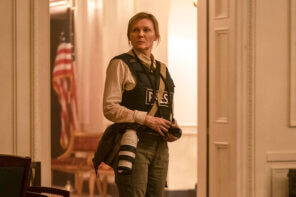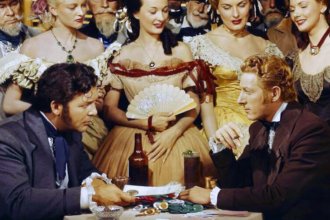Welcome to part two of our Oscar picks! Here’s part one if you missed it: Oscars 2023 – Who Should Win? (Part One)
Remember, these aren’t the movies that will win, these are the movies that should win. Here are our picks for the most coveted categories of the night…
Best Supporting Actress
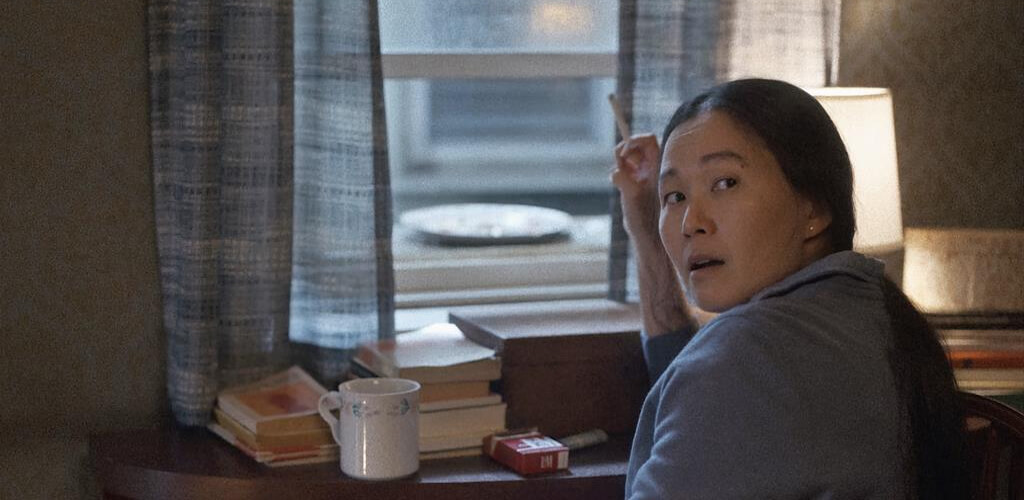
Angela Bassett — Black Panther: Wakanda Forever
Jamie Lee Curtis — Everything Everywhere All at Once
Kerry Condon — The Banshees of Inisherin
Stephanie Hsu — Everything Everywhere All at Once
Hong Chau — The Whale
Angela Bassett is the sentimental favorite and the one getting all the attention to this point, but she’s the weakest nominee. Bassett certainly has her moments, but she doesn’t have enough scenes to rise above the Marvel noise and make an indelible impact. Jamie Lee Curtis has also received overrated attention throughout the awards season. It’s infectious seeing Curtis having fun in a fresh role, and her character will be more memorable 10 years from now than Bassett, but she similarly gets drowned out by a loud movie with too much going on.
Kerry Condon is the first actress in the mix to do the category justice. There are two kinds of supporting performances: those that let the leads do the heavy lifting while providing just enough to stand out from the mix, and those that take over the movie completely and threaten to become the best thing about it. Condon functions as the former. Her scenes are few, but memorable, and she provides an important contrast to the toxic male energy on display at every turn. Stephanie Hsu storms in with the latter style. Like her everything bagel, Hsu sucks all the energy of Everything Everywhere All at Once in her direction and nearly steals the film. Watching her play polar opposite characters is a delight, as is her range on display. She may tiptoe into caricature territory at times, but her performance is nothing short of mesmerizing. Whenever she’s on screen, we can’t take our eyes off her.
Hong Chau provides a perfect mix of both supporting performance styles. She’s in the movie enough to feel like a lead and her character has an edge that lights up every scene, but she also perfectly compliments her fellow actors and lets them shine too. Her monologue with missionary teen Ty Simpkins is a standout. We finally see the root of her pain and why her shell is always up around others. The best moments, however, are appropriately with Brendan Fraser’s Charlie. Her relationship with him is complicated. She hates what Charlie is doing to himself, but she also understands his pain because it’s a mirror image of her own. You could say she enables his self-harm, but that’s too simplistic. Loving addicts is a messy business. Shaming and withdrawing only make things worse, but how unconditional should love be when someone is killing themself before your eyes? There are no easy answers, and Chau perfectly embodies the complexity. Most importantly, though, she feels like a real person you care about by the time the credits roll. Chau won’t win the Oscar, but she’s the most worthy.
Best Supporting Actor
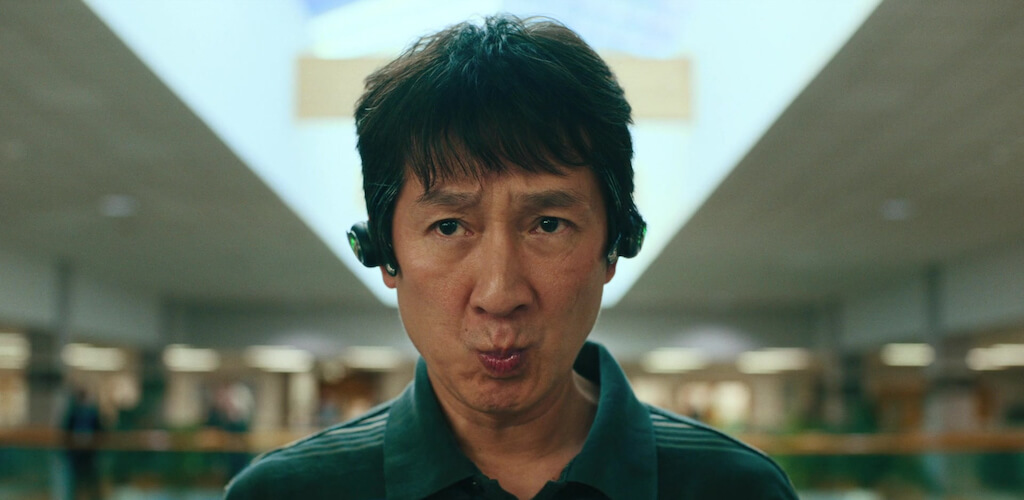
Judd Hirsch — The Fabelmans
Brendan Gleeson — The Banshees of Inisherin
Barry Keoghan — The Banshees of Inisherin
Bryan Tyree Henry — Causeway
Ke Huy Quan — Everything Everywhere All at Once
Judd Hirsch is phenomenal in The Fabelmans. From the moment he arrives on screen, we’re locked in with his character and delighted by his energy. The problem is he’s only on screen for two scenes. It’s a credit to the strength of this category that he’s just as deserving as everyone else nominated.
All the principal characters in The Banshees of Inisherin are nominated for their work in the film which is a credit to Martin McDonagh’s direction. He brought out the best in his actors. It’s hard to understand Brendan Gleeson’s Colm at first. Why would he go through such extreme lengths to end a friendship? But over the course of the film we see the depths of the pain he’s suppressing. Colm is terrified of growing old with nothing to show for it, and he’s outsourcing all of that fear onto Pádraic. That doesn’t make his actions any more pleasant, but they do make them more human. Barry Koeghan is similar to Colm in that we’re initially repulsed by them, but eventually grow in our sympathies. Dominic is the village idiot. No one expects anything of him. But how did he become this way? An abusive, detached father certainly doesn’t help. Isn’t Dominic just as worthy of love as the rest of us? Our heart breaks for him in the standout scene where he reveals his true love to Siobhán only to be rejected out of hand. We’ve all been there. We’re all familiar with that look in his eyes. Heartbreak may be universal, but that doesn’t make it any less devastating.
What a triumph for the Academy to recognize Bryan Tyree Henry’s work in Causeway, the film’s lone nomination. Henry was always great in Atlanta, but this is easily his best work to date. There’s an effortlessness to his acting style that doesn’t even feel like acting. It’s intuitive. He delivers his dialogue with the natural pauses and meanderings of real conversation. And in Causeway, he gives us a fully three dimensional character. The kind we feel like we’re friends with by the end of the movie. The scene where he reveals his character’s backstory is haunting, but the most memorable moment is the poolside exchange with Lynsey where his true feelings are revealed. The vulnerability he displays in the face of rejection is heart-wrenching. We feel better off for the time we spent with James, and we hope he’s doing okay.
This is Ke Huy Quan’s moment, and he deserves the Oscar he’ll be holding high on March 12. Quan has been known as Short Round from Temple of Doom is whole life, for better or worse. But this is the year where he finally busted out of that box and showed the full range of his talent. Like most of the actors in Everything Everywhere All at Once, Quan gets to play multiple versions of his character, from domesticated wimp to full-on action hero. It’s the former that wins our hearts over in the end, along with Evelyn. While society continues to place ultimate value on traditional male masculinity and the ability to knock out an attacker with one punch, Quan shows us a different kind of male strength. The kind exemplified by humility, loyalty, peacemaking, and love. It may not be sexy, but it’s no less necessary. We need more characters like Waymond. Hopefully Quan’s Oscar win will help.
Best Actor
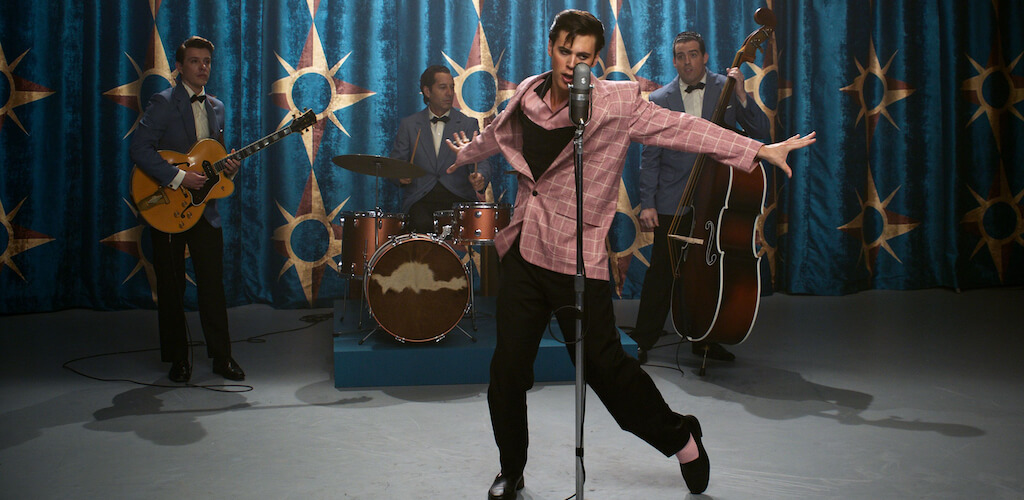
Bill Nighy — Living
Colin Farrell — The Banshees of Inisherin
Paul Mescal — Aftersun
Brendan Fraser — The Whale
Austin Butler — Elvis
Bill Nighy is the best thing about Living, but Living is a terrible movie that drags him down too. There is one moment we wish were the entire film. Nighy, after finding out he has months to live, goes to a pub and asks to sing a song in front of strangers. The song he chooses is an old Scottish folk tune. When he gets to a verse about his mother, he chokes up and we do too. That’s the scene that no doubt earned him his nomination. But the rest of his performance is too stiff, and the rest of the film too dull, to leave a lasting impression.
The Banshees of Inisherin is arguably Colin Farrell’s best performance of his career, but he won’t win an Oscar for it. That’s a shame, but also a testament to how many great performances there were in 2022. Anyone who has ever tried to be a nice person in this world only to get kicked in teeth can relate to Farrell’s Pádraic. His best scene, in fact, is the one where he defends “niceness” itself. Pádraic is bewildered at his mistreatment because he knows he’s done nothing to deserve it. And yet, by refusing to let it go, he betrays himself and becomes the very thing he hates. By the end of the movie, we miss the jovial man we met at the start. He was nice. And in a world filled with hatred, deception, and cruelty, nice still matters.
Aftersun deserves so much more than this one nomination, but that’s in no way an indictment of Paul Mescal. He more than earned it, and in another year he would have won too. Mescal embraces the film’s minimalist aesthetic. He lives and breathes his character. There are no grand moments of epiphany or any scene that would fit neatly in a highlight reel. This is true character work that seeps into our souls. I’ll never forget the image of Mescal’s Calum dancing with abandon in strobe lights while his grown daughter unleashes her screams of love and fury. It’s a stunning metaphor for parenting. The hardest part about the job is that we’re raising works in progress while still being works in progress. We do our best, but we get it wrong every day. The love from our kids is warranted just as much as their anger. The camera watches dispassionately in another scene as Mescal sobs uncontrollably on the side of his bed. His young daughter sleeps soundly nearby. That’s parenting. Lord help us.
Brendan Fraser will probably win on March 12 and that’s just fine, regardless of whether his performance is the best. Fraser deserves all the recognition he’s received this awards season. This is easily his best work, and also a comeback story for an actor who was chewed up and spit out by the Hollywood machine. Fraser’s Charlie can relate. Society has no tolerance for the morbidly obese. Only judgment. They did it to themselves, goes the refrain. There’s no hiding their addictions because it’s written on their very body. And yet, we’re all addicted to something. And like Charlie, we search for that something when we’re lost in our pain. Charlie has long given up on fitting in. He just wants his life to mean something. And for a few brief moments on what could be his last week on earth, it does. The controversy of the filmmaking aside, this is an incredible performance from Fraser, and a welcome return for a truly gifted actor.
Austin Butler is Elvis, and that’s the job. He talks like him, sings like him, and dances like him. Yes, that’s really his voice singing through the mic. Yes, those are really his moves on stage. And they didn’t happen by accident; they’re hard-earned. He studied the King exhaustively for years and finally became him. So much so that, according to interviews, he’s still finding it hard to shake him off long after the movie has wrapped. It’s acting by way of possession. Butler not only channels the surface of Elvis, but also the haunting sadness that engulfed his life. He was a legend, but felt like a failure. I mean what I said about being happy for Fraser if all indications are right and he wins. But a part of me will be sad too. Because when an actor works this hard at his craft and achieves everything we could ever ask of him, he deserves a statue of gold at the end of the journey.
Best Actress
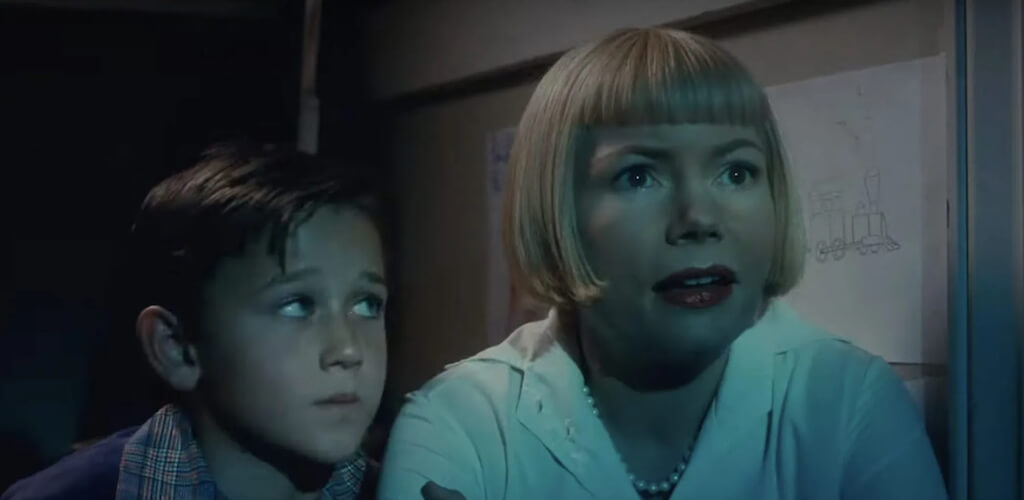
Ana De Armas — Blonde
Cate Blanchett — Tár
Andrea Riseborough — To Leslie
Michelle Yeoh — Everything Everywhere All at Once
Michelle Williams — The Fabelmans
Ana De Armas is a victim of media manipulation much like her character Marilyn Monroe. Blonde came drenched in controversy, mostly for its NC-17 rating which is completely undeserved. Boogie Nights gets an R rating, but this is NC-17? Absurd. But beyond that, Blonde just isn’t a very good movie, and De Armas suffers for it. Marilyn Monroe is a fascinating character. De Armas hints at a woman who was written off by the world as a sexpot, but contained hidden depths. I have no doubt that’s true, but the film isn’t successful in proving the case. Director Andrew Dominik spends far too much time on Monroe’s daddy issues and victimization and not enough time highlighting her strengths. De Armas may very well have given an Oscar-worthy performance on set, but it was swallowed up by poor filmmaking and unwarranted publicity — both of which Monroe herself knew well.
Surprisingly Cate Blanchett suffers the same fate, though Tár is an infinitely better movie than Blonde. There’s a strange stiffness in Todd Field’s writing and directing. We keep waiting for the moment when Blanchett busts out of her shell and reveals the ocean of repressed emotion Lydia Tár keeps in check, but that moment never comes. We see glimpses of it in the final act, but an inexplicably rushed timeline minimizes the impact. That’s a shame because Blanchett is locked in here. This is a woman who has spent her entire life manicuring the image of the consummate artist, only to see it unravel in minutes when the truth of her dalliances come to light. Blanchett carries the movie on her back and is fascinating to watch in every scene, but she deserves more in the final stretch. This should have been the character arc of the ages. Instead, it’s a shaking volcano set-up without the eruption.
Andrea Riseborough joins the club in being surrounded by questionable filmmaking, but unlike De Armas and Blanchett, she manages to rise above it and deliver the goods anyway. Riseborough even overcomes acting opposite a miscast Marc Maron to salvage every scene she’s in. There’s a palpable world-weariness to Riseborough’s Leslie. She’s hit rock bottom more than once and might get there again. And yet, she refuses to give up. She’s burned every bridge, but still manages to put one foot in front of the other anyway. She’s fighting tooth and nail for one last shred of dignity inside of her and the hope that somehow she can still be redeemed. It’s an exceptional performance from an actress whose best may still be yet to come.
Michelle Yeoh has been in over 50 movies and yet somehow she saved her best performance for 2022. Evelyn is both like us and beyond us. A relatable human being and a superhero. Yeoh plays both parts perfectly. But it’s really in the second half where she shines. The best moment, for both her character and the film, is when she puts on her third eye and finally sees the way of love. She looks at the people she was once fighting no longer as enemies, but as brothers and sisters. And she takes the time to love each of them in exactly the way they need it most. The look in her eyes is unforgettable, and so is this performance.
There’s an intangible element that separates Michelle Williams from the other women in this category. It’s not her talent, though there’s plenty of that on display. It’s the character that Steven Spielberg has crafted for her. As the first three nominees can attest, the way a movie is written, shot, and edited can hinder actors or set them free. Williams benefits from Spielberg’s firm hand that guides The Fabelmans, but she also benefits from the source material. The Fabelmans is based on Spielberg’s real life and Williams plays his mother in a way that somehow becomes a stand-in for all mothers. Her character is larger than life because Sammy (and Spielberg) saw her that way. There’s an ethereal quality that Williams taps into here. She’s the mother of our memories; the divine feminine energy that guided and shaped us as only mothers can. That magic is what separates Williams from the pack, and it’s what will hopefully win her an Oscar for the very first time.
Best Director
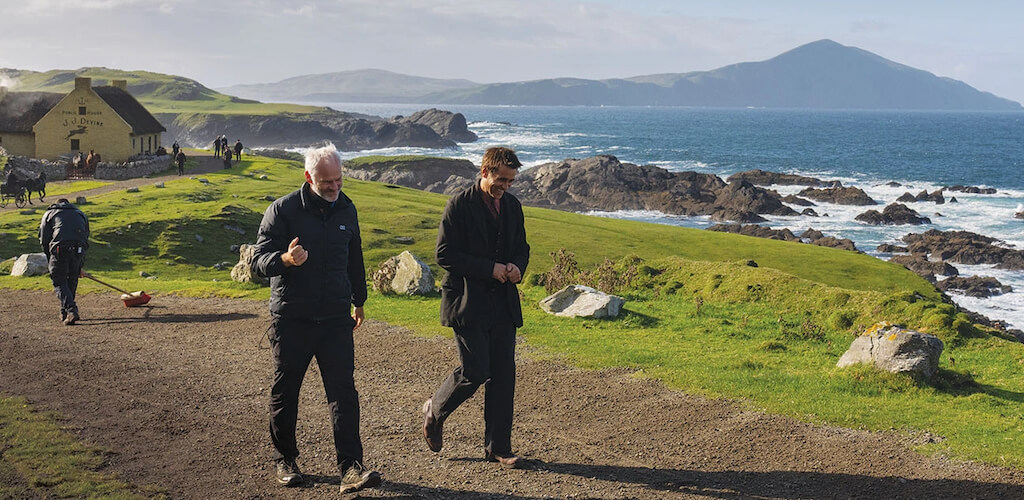
Daniel Kwan and Daniel Scheinert — Everything Everywhere All at Once
Ruben Östlund — Triangle of Sadness
Todd Field — Tár
Steven Spielberg — The Fabelmans
Martin McDonagh — Banshees of Inisherin
The central problem with Everything Everywhere All at Once is the directing. The ideas are fascinating, the acting is terrific — all the ingredients are present. But they’re hindered by uneven pacing, tone, and transitions which fall at the feet of the Daniels. The fight scenes drag on too long, the crude humor and over-the-top violence are distracting, and the abrupt shift from the first half to the second results in emotional whiplash. And yet, the power of the second half almost makes up for every flaw. These guys know how to land the plane, and a great ending covers a multitude of sins.
Ruben Östlund provides a more even directing hand with Triangle of Sadness, but he’s not without blame. The infamous dinner scene is both a blessing and a curse. On the one hand, it’s an unforgettable moment that shocks us and provides a needed humbling for the passengers. On the other, it’s far too long and extreme, and it becomes the point where Östlund loses his subtlety for good. What was a refreshingly intricate satire becomes full-blown satire, and the film never recovers. Also, unlike the aforementioned Daniels, Östlund botches the ending which leaves a bad taste in our mouths once the credits finally roll.
Todd Field provides a masterclass in directing for the first two acts of Tár. His restraint allows scenes to breathe. A perfect example is the class Lydia teaches at the university. We’re allowed to simply observe as she stalks around the room pontificating on musicians and cancel culture. No distracting score. No unnecessary camera tricks. Just Cate Blanchett lighting up the room as she does best. But Field’s restraint turns into a liability in the final stretch of the film. He spends the entire movie setting us up for a great unraveling with the middle of the night noises and ominous events coming home to roost. And yet, when the unraveling finally comes, we’re left wanting. The majority of the movie is slow and deliberately paced, but Lydia’s breakdown is sped up and over before we know it. Why? Only Field can answer that, but the result is a diluted emotional payoff and a missed opportunity.
Steven Spielberg is back. The Fabelmans is his best work since 2005’s Munich. Clearly the personal nature of the story rejuvenated him as a filmmaker. Spielberg never makes bad movies, but he’s been in a drought of mediocrity. Seeing him back in his element again is invigorating. The first scene is shot from Sammy’s perspective as he stands next to the legs of his parents. First his mom crouches down and enters the frame, then his dad. The two sides of the coin that form Sammy (Spielberg) into the filmmaker he’ll one day become. Like all well-directed movies, everything is deliberate. Especially the linchpin of the entire movie — that final shot — where Spielberg jerkily pans up to the sky and we remember that the teenage boy dancing in the backlot of the movie studio is the same man who’s now behind the lens. That’s great directing.
I was never sold on Martin McDonagh’s talents until The Banshees of Inisherin. Now I’m a believer for life. This is a man in control of his film from the first shot to the last. We first meet Pádraic strolling through the beautiful cliffs of a fictional island off the coast of Ireland. The tone is light and whimsical. The first half is something akin to Irish fable with its quick wit and perfect pacing. The central conflict feels like a comic misunderstanding that will soon be resolved. But there are storm clouds on the horizon and ever so gradually, bit by bit, McDonagh takes us in a darker direction with increasing depth. Only a master filmmaker could pull off that transition. By the end of the movie, we realize the purpose of the darkness and what it has to teach us. McDonagh elicits perfection in every stage of his craft with Inisherin. I’ll never doubt him again.
Best Picture
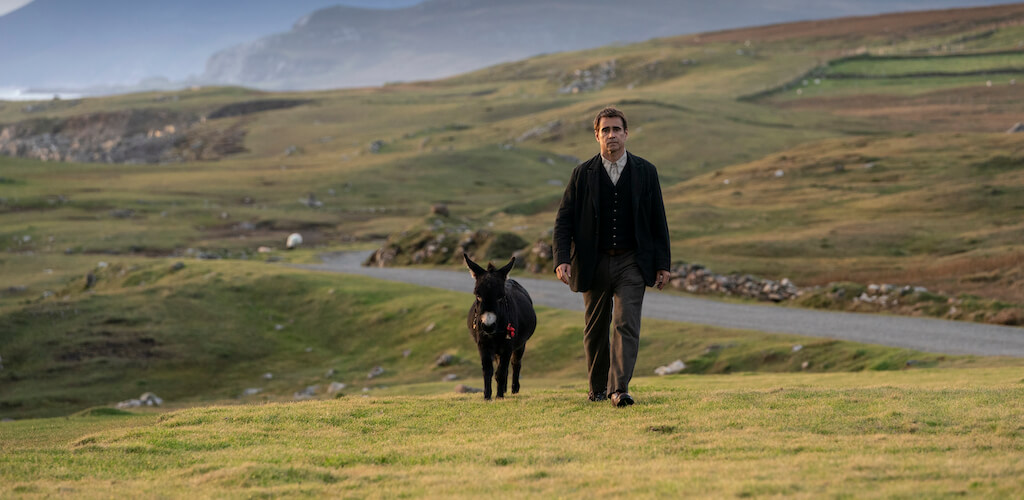
Avatar: The Way of Water
Elvis
Triangle of Sadness
Everything Everywhere All at Once
Top Gun: Maverick
Tár
All Quiet on the Western Front
The Fabelmans
Women Talking
The Banshees of Inisherin
Avatar: The Way of Water doesn’t belong anywhere near the Oscars. The first Avatar had problems. This one is even worse. The animation isn’t good enough, the story is weak, the characters are generic, and the entire movie needs an editor. And yet, here we are with James Cameron emboldened by a Best Picture nomination and $2 billion in box office revenue. There are Avatar sequels scheduled for release every two years until 2028. With this kind of success, they may not be the last. What a waste.
Baz Lurhmann can’t help himself. He has to turn every movie into a fever dream for the ages, regardless of whether the plot deserves it or not. There are moments in Elvis where his signature style is justified, but there are countless others where we wish he’d calm down and just tell us the story. Thankfully Lurhmann has Austin Butler up his sleeve, and Butler single-handedly makes Elvis worth watching. Very little else works in the movie, including Tom Hanks (!), but Butler’s performance is a sight to behold.
Triangle of Sadness is filled with fascinating ideas and masterful moments, but it’s too uneven to be a Best Picture contender. That’s too bad, because the ingredients are there for something special. The power reversal that takes place on the island is a sight to behold. Suddenly the person in charge of toilets on the luxury cruise liner is in charge of the 1% because she’s the only one who knows how to fish. Money and power mean nothing when you’re hungry and lacking in both. If Ruben Östlund had found a consistent tone, a shorter runtime, and a satisfying ending, we could be talking about the best movie of the year.
Everything Everywhere All at Once should have been a masterpiece. The second half surely is. Unfortunately, before we get there we’re stuck with a poor man’s Matrix. Instead of a blue pill sending our hero down the rabbit hole, it’s a wonky headset and a dildo. The tonal shifts are jarring and the fight scenes could use some of that old Wachowski magic. But oh what a difference the second half makes. Suddenly everything snaps into place. By the end of the movie, we’re left pondering our own place in the multiverse and the power of love in the face of hopelessness. In the climax of the film, Evelyn becomes a new kind of superhero — laying down her weapons and loving her enemies instead. Sounds like someone else we know.
Top Gun: Maverick was the surprise of the summer. This shouldn’t have been a good movie. It’s the sequel no one asked for and no one believed in. But from the second “Danger Zone” kicks in, we’re locked in for the ride of our life and everything works. That’s not to say Maverick is a perfect film, but the greatest trick director Joseph Kosinski pulls off is that the flaws are only noticeable in retrospect. This is a perfectly paced movie. We’re too busy zooming to the next beat of our impossible mission to worry about clunky dialogue or a shallow romantic subplot. Maverick is what summer movies used to be before Marvel took over the universe. Who knew that Top Gun 2 would not only be a good movie, but also a legitimate Best Picture contender? Tom Cruise wins again.
I wanted to like Tár more than I did. All of my favorite elements are present: prestigious talent in front of and behind the lens, an intimate character piece, and a drama filled with intense emotion and catharsis. But it’s that last part that was the biggest disappointment. Todd Field is an undeniable talent, and few actresses can rival the great Cate Blanchett. Together they make a compelling movie that’s impeccably filmed and acted from start to finish. And yet, a crucial element is missing in that the movie is emotionally inert. Maybe that was on purpose. After all, Lydia Tár herself represses emotions to a fault. Still, Field leads us to believe for two hours that an epic emotional explosion is coming only to leave us with a rushed whimper and credits. Don’t get me wrong, Tár is a good movie. One of the best of the year. But with the monumental talent involved, I expected more.
All Quiet on the Western Front could be the most effective anti-war movie ever made. When Paul (Felix Kammerer) signs up to fight with his fellow Germans, nothing can wipe the enthusiasm off their faces. By the time they’re through, only dirt and trauma remain. Director Edward Berger excels with both the wide lens and the close-up. The sweeping tracking shots of the battlefield are unforgettable as unspeakable horrors fill every inch of the frame. But even more effective are the intimate scenes in the trenches where the souls of enemy combatants collide. Paul’s one-on-one fight with a French soldier could be the best scene of the movie. Paul fights for his life at first by stabbing his enemy ruthlessly, but as the blood gurgles out of the French soldiers mouth, Paul realizes what he has done. This is a man with a family, no different than him. He signed up to fight for his country too. There are no winners in war. Just death and madness and evil. As a real war wages on in Ukraine, this movie couldn’t be more timely.
I’ve loved Steven Spielberg since I was a kid. I wouldn’t be writing this article if it weren’t for movies like Jurassic Park, Indiana Jones, E.T., Jaws, and Schindler’s List. They changed my life, and I don’t say that lightly. What a pleasure to finally see his story on the same big screen. The best moments in The Fabelmans are Spielberg’s early films. The way he learned to use that grainy film stock to manipulate an audience. The look of pleasure on Sammy’s (Spielberg’s) face when his audience laughs and gasps at all the right moments. The way he turned his high school bully into an ironic hero, proving art to be a better weapon than brawn. How his parents formed both sides of his brain — the technical and the emotional — to create the films we know and love. Spielberg hangs over The Fabelmans like a shadow, giving ordinary moments their power. And in one final shot, he makes the implicit explicit by following John Ford’s advice and panning up to the horizon just after showing us the very moment he received that advice at age 15. It’s a meta moment if there ever was one, and the perfect autobiographical flourish from the greatest director of all time.
Women Talking takes place mostly in a barn where a group of women gather to discuss the best response to being treated like cattle their entire lives. Should they stay or should they go? The men deserve nothing, and yet the women consider them. They talk at length about love and forgiveness and God, while reeling from the trauma of their collective abuse. The movie is impeccably acted with lines uttered from the best script of 2022. And though its literary roots are clear, it still feels like a movie. This is a phenomenal film. The most “Christian” movie I’ve seen in years. It’s too bad churches won’t be playing it because they’re the audience who need it most. More harm has been done to women in the name of religion than any “secular” agenda. These women are living proof. Women Talking is a feminist movie in the purest sense of the word. An indictment of patriarchy. A mirror to toxic masculinity. A primal cry for a better world with better men.
If 2022 was the year we returned to normal life after Covid, then it feels fitting that the best movie of that year is The Banshees of Inisherin. One of the most baffling elements of our bout with the disease is how little we agreed on, even as a million people died from it in the U.S. alone. We can’t agree on that number either. We can’t agree on anything. That’s exactly what this film is about. Pádraic (Colin Farrell) goes to his friend’s house one day like he does every day, but on this particular occasion his friend doesn’t want to see him. He soon finds out that his friends doesn’t want to be friends with him anymore at all. Not because he did anything wrong, but simply because he’s “dull” and Colm (Brendan Gleeson) doesn’t have time for dull people anymore. It’s a cruel assessment, but Pádraic should have grieved the loss and moved on. Instead he escalates the conflict and so does Colm. And by the end, something that started off so small and comical gives birth to death. In the background, the Irish Civil War wages on. Martin McDonagh has made the right movie for our times. It’s dark because it needs to be. When we can’t agree on the most fundamental truths, how do we live together? When half the country believes the other half is evil, how can there ever be peace? McDonagh uses every trick in the writer/director tool box, and he employs a cast at the top of his game. This is a perfect film, and an important film. The last shot we see of Pádraic and Colm, they are hopelessly divided. So are we. The banshees are screaming. Will we ever listen? This is the best picture of the year.
Join Us…
We’ll be hosting a live discussion on Oscar night and we’d love for you to join us! Follow us on Reddit to get in on the action: https://www.reddit.com/r/cinemafaith/

